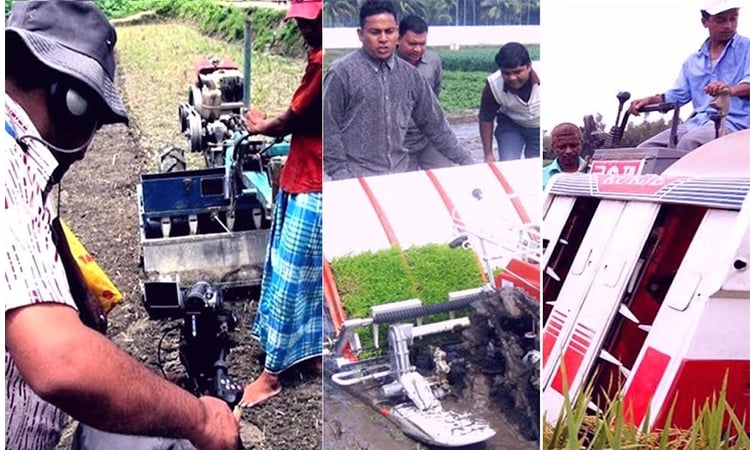News Flash
News Flash

By Md Mamun Islam
RANGPUR, Aug 25, 2025 (BSS) - With continued success in climate change adaptation, Bangladesh's agriculture sector is gradually transforming into a sustainable system by consistently increasing food production every year.
Agriculture experts said Bangladesh is progressing in the right direction to achieve sustainability in agriculture by overcoming multiple constraints, including the adverse impacts of climate change.
"Continuous research by agricultural scientists focusing on innovation and expansion of climate-smart crop varieties under profitable cropping patterns is proving effective in boosting food productivity," said Dr Md Abdul Mazid, an eminent rice scientist and recipient of the Independence Award 2018 for food security.
He told BSS, Bangladesh is firmly moving towards agricultural sustainability through climate adaptation, paving the way for achieving self-sufficiency in food production.
The expansion of climate-smart crop cultivation, increased mechanization, adoption of proven technologies and best agricultural practices, balanced fertilization and pest control, along with enhanced irrigation facilities, have significantly contributed to the growth in food production, he added.
"All agricultural research institutions are engaged in continuous research to develop demand-oriented, climate-smart and stress-tolerant high-yielding crop varieties to further enhance food productivity," said Dr Mazid, also former Chief Scientific Officer of Bangladesh Rice Research Institute (BRRI).
He observed that farmers are increasingly adopting improved and eco-friendly agricultural technologies and practices that cause minimal environmental harm.
"For sustainable agriculture in the face of a changing climate, we must ensure the effective dissemination of extension services, improved technologies, and proven practices among farmers. Using video-based training is also essential to address agricultural and natural resource challenges," he added.
Currently, Bangladesh produces over 39.01 million metric tonnes of clean Aman, Aush, and Boro rice annually, alongside other cereal crops, to feed more than 160 million people and stay on course to meet the Sustainable Development Goals (SDGs) by 2030.
Dr Mazid further noted that the upward trend in rice production is likely to continue, thanks to pragmatic government initiatives aimed at boosting output by nearly one and a half times by 2050 to feed a projected population of 220 million.
He particularly stressed the importance of adopting resource-conserving and conservation agriculture technologies and practices, integrated pest and nutrient management, reduced tillage, and agroforestry for ensuring long-term sustainability in the agriculture sector.
"Ensuring access to quality seeds of high-yielding crops and transferring hybrid crop seed production technologies to farmers-alongside ICT-based training on the latest innovations-will be vital to increasing food productivity," he said.
Md Mamunur Rashid, a PhD Fellow at the Department of Agricultural Extension, Haji Mohammad Danesh Science and Technology University, Dinajpur, said rice yield continues to grow, bolstering hopes for sustainable agriculture.
He said, "The expanded cultivation of climate-smart rice varieties-such as those tolerant to floods, droughts, cold, salinity, heat, and diseases, as well as zinc- and vitamin A-enriched varieties-is not only increasing output but also addressing nutritional needs."
Acting Additional Director of the Department of Agricultural Extension (DAE) for Rangpur region, Md Sirajul Islam, said food production is rising steadily as farmers are now using quality seeds of climate-resilient crops, compost fertilizers, and modern technologies.
"Like other parts of the country, the Rangpur agricultural region is witnessing a continuous increase in crop intensity every year. This trend reinforces Bangladesh's journey towards agricultural sustainability," he added.